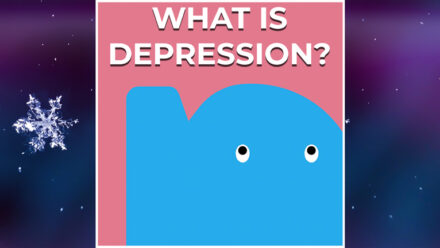
A common misunderstanding in psychiatry is that a higher psychiatric medication dosage is automatically more effective.
Many people – including some care providers – believe: “If 100 milligrams works, then 200 must work twice as well.” Unfortunately, it doesn’t work like that. Neither antidepressants, antipsychotics, nor mood stabilisers follow this simple logic.
The myth of linear dosage
We tend to think in straight lines: more painkillers means less pain, more sleeping pills means more sleep. So the assumption is: more antidepressants means less depression. But psychiatric medication doesn’t follow this linear pattern.
The effects of psychiatric medication dosage are non-linear and differ from person to person – a phenomenon known as idiosyncrasy. What works for one person may worsen symptoms in another. A low dose can bring relief, while a higher dose may cause severe side effects – without increasing effectiveness.
Antidepressants: dosage and side effects
SSRIs such as sertraline (Zoloft) or escitalopram (Cipralex/Lexapro) aim to increase serotonin levels. But the link between serotonin and depression is still uncertain. What is clear: higher psychiatric medication dosage often leads to stronger side effects – nausea, insomnia, anxiety, inner restlessness, and in some cases, even suicidal thoughts.
For some people, a lower dose works best. For others, higher doses bring no extra benefit at all.
Antipsychotics: more pills, more risk?
Antipsychotics like olanzapine (Zyprexa) or aripiprazole (Abilify) are prescribed for psychosis sensitivity or mood swings. They influence dopamine, yet their exact mechanism is not fully understood. At higher psychiatric medication dosages, the risk of side effects increases: weight gain, diabetes, stiffness, akathisia, tiredness, and sexual side effects.
Sometimes, less really is more.
Mood stabilisers: balance over dosage
Mood stabilisers such as lithium, valproate (Depakene), and lamotrigine (Lamictal) also show non-linear effects. Lithium can be very effective in bipolar disorder, but the therapeutic window is small. A slightly too high dosage can cause tremors, memory issues, or even intoxication. Lamotrigine requires a slow build-up to prevent severe skin reactions. And valproate can cause hair loss, liver problems, and weight gain.
Here too, side effects rise with dosage, while effectiveness does not necessarily increase.
What do we really know?
The connection between brain chemistry, moods, and behaviour is still partly a mystery. Why antidepressants help some people but trigger suicidality in others remains unclear. Why antipsychotics calm one person but cause anxiety in another is equally puzzling.
Psychiatric medication dosage: the real lessons
Psychiatric medication can help – sometimes as an important pillar of treatment. But the belief that “more is always better” is misleading and sometimes dangerous.
Finding the right psychiatric medication dosage requires patience, trust, and careful listening. Most importantly: every person is unique. Medication is not a simple machine adjustment.
If you are starting or already using medication, remember: you are the expert on your own experience – and that experience matters.
Translated from Dutch by SGM Taplin





Comments: